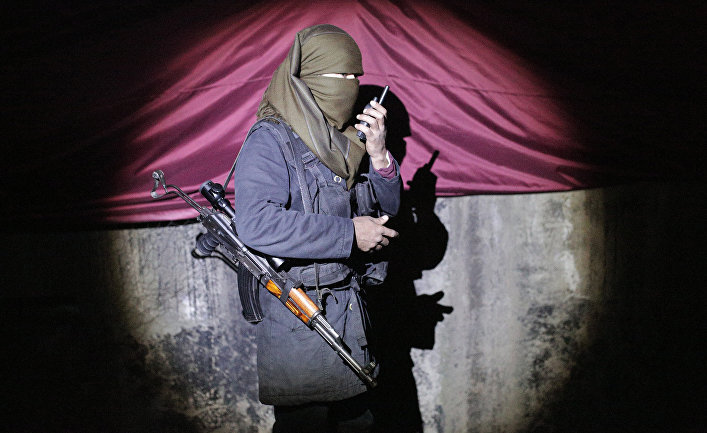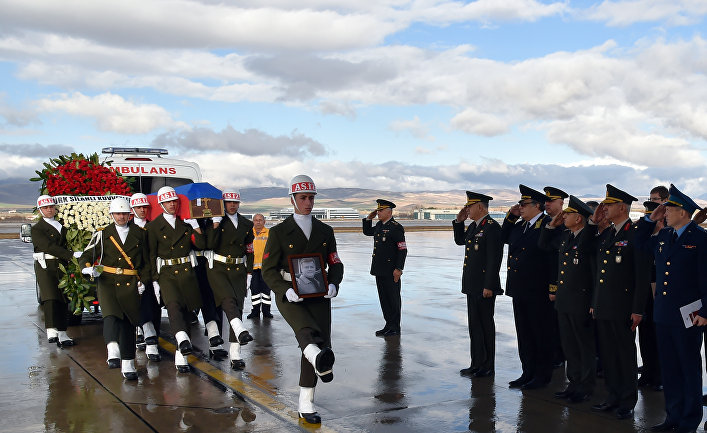In 1960 a US U-2 spy plane took off from Incirlik air base in Turkey and entered Soviet airspace, where it got shot down. This U-2 incident happened in the time of Cold War during the US presidency of Dwight D. Eisenhower and Nikita Khrushchev's leadership of the USSR.
The CIA pilot Francis Gary Power was captured alive. When interrogated, he admitted that he was flying to determine the placement of missiles, radars, and wireless stations. The U-2 spy planes, which couldn't be detected by a radar, were equipped with HD cameras. When these flights were discovered, Khrushchev's reaction was much harder than Putin's after SU-24. He threatened NATO saying "We are capable of hitting every airport in Europe." Yet the West was far away, while Turkey was under the nose of the USSR. Khrushchev bluntly threatened Turkey. Then Turkey applied to NATO as soon as possible. The US gave 15 Jupiter missiles to be deployed mainly around the straits and to protect from the Soviet missiles.
When Süleyman Demirel came to power winning 53 percent of the vote in Turkey's 1965 general election, the US wanted to revise the agreement about the military bases. Meanwhile, spy flights which took off from İncirlik and flew over the Soviet airspace were banned. That naturally bothered the US, which also demanded a ban on poppy farms. But Demirel reacted saying "There are poppy fields in 20 cities and their surrounding area. We have a city named 'Afyon' (opium)." The US's pressure was so high that Demirel had to give the US Ambassador William Hadley, who was using an iron hand in a velvet glove, the gate. When Demirel started building relations with the USSR, while plants in Seydişehir and İskenderun were on the agenda, the US showed Demirel the gate as well. Demirel was ousted in the 12 March 1971 coup. The PM of 12 March Nihat Erim, with the support of the US, first banned poppy cultivation and then allowed U-2 spy planes fly off Incirlik.
#NATO's decision to support #Turkey shows us unable to control alliance https://t.co/tKjzpvP7Im pic.twitter.com/JYbfaGSlVw
— Sputnik (@SputnikInt) December 20, 2015
Turkish politician İhsan Sabri Çağlayangil, who said "The CIA undermined us and we were not even aware of that," stressed another historical point: "The US doesn't care whether a country is governed by democracy or dictated by fascism. The US cares how much that country is dependent on it and Washington can make that country its satellite."
There is no need to look for a connection between the downed spy plane in 1960 and the Russian jet today. But why now? And as one gets closer to the answer one faces another set of questions. When asking "why a Russian plane?" another question is weighing on: "Who did this to Turkey?" Many people in Ankara are not convinced. A government official who watched the video of the downing of SU-24 asked: "Why was a plane which was about to leave our airspace shot down?"
The reason why it's important to ask questions like "Why now?" and "Why Russian plane?" is because it happened just before an important military operation. Su-24 bomber was shot down on November 24. But Russian FM Sergei Lavrov was going to be in Turkey that same evening. More importantly, Turkey was about to press the button for Jarablus Operation (which has a strategic importance for Turkey). Turkish Armed Forces (TSK) prepared the plan, coordinated with the US and even determined the date when the operation will end. The biggest handicap for the operation seemed to be the agreement signed with Russia.
While planning the operation, intense strikes on Turkish and US planes were foreseen. The biggest risk was Russian war planes in Syrian airspace. When Russian President Vladimir Putin came to Antalya for G-20 summit, he was informed about the operation and guaranteed that “he would react before the cameras but do nothing to prevent the operation." The biggest question comes from Putin's statement "The US has this region in mind for the Kurds."
There are two-sided doubts about the downed bomber. The surviving pilot Murakhtin said "In actual fact, there were no warnings at all. Neither through the radio, nor visually, so we did not at any point adjust our course." He might say this for propaganda reasons. TSK stated that the jet was warned 10 times in the period of 5 minutes. Voice records were shared. Colonel Steve Warren said the coalition forces heard the warnings of the Turkish side. A Dutch general who spoke to RTL 4 channel said "We heard Turkish Air Forces calling through the emergency frequency. The plane which was about to enter to Turkish airspace was warned dozens times. Russians did not respond even once."
#US media turns a blind eye to #Turkey’s crimes https://t.co/OhhJmOdeJp pic.twitter.com/XGROi34ro7
— Russia Insider (@RussiaInsider) December 19, 2015
Did Russian military intentionally uploaded the wrong map to the bomber and closed wireless frequency called Guard in order to be permanent in the Middle East, expand operations in Syria and deploy S-400 missiles which NATO oppose? The hypothesis that Turkey and Russia fell into a trap can't be ruled out.
The US takes Turkey's side in this conflict. But there is no strong support. Moreover, considering the fact that the US's and Russia's policies on Syria are compatible 80%, is it possible that Turkey was collaboratively trapped. Why was the bomber shot down when it was about to leave Turkish airspace? Was it an effort to prevent Jarablus operation? Was it an effort to distance from AKP, which came to power with 49.5% of the votes? The main question remains — was downing of the Russian SU-24 bomber a trap for Turkey?







